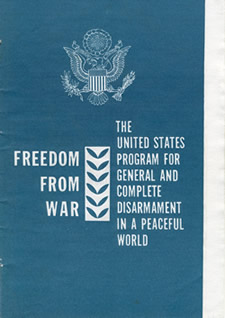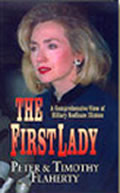THE
SECRET LIFE OF AIC
PART 1 of 2
By
Jon Christian Ryter
March 31, 2009
NewsWithViews.com
For a century the American International Corporation succeeded in remaining invisible because its founders thrived on absolute secrecy. And, those founders—were? AIC was incorporated in 1910. While Charles Stone's name appears as the historic founding head of AIC, the company was the brainchild of John D. Rockefeller, Sr., Andrew Mellon, J.P. Morgan, and Andrew Carnegie. An assortment of American industrialists, bankers and merchant princes joined the AIC parade over the next couple of years because they were convinced that, with the financial clout of the world's wealthiest men behind it, the new 800-lb economic gorilla on the horizon was going to be Russia. They all wanted a piece of the action in a new economy devoid of thousands of government restrictions that hamstring business.
Rockefeller's interest in Russia stemmed from the discovery of oil in Baku near the Caspian Sea in Azerbaijan. The oil field was the largest known oil strike in the world. It was controlled entirely by the Swedish munitions manufacturers Alfred and Robert Nobel and Tzar Nicholas II's banker, Baron Alphonse Rothschild. By 1884 Rothschild and Nobel were pumping as much oil from the Baku Oil Fields as Rockefeller was from all of his holdings in the United States. Rockefeller was determined to do in Russia what he had succeeded in doing in the United States in two decades?corner the refining and distribution of oil. By 1870 Standard Oil controlled 85% of the refining and distribution of oil in the entire world. By 1880, he lost most of his distribution rights in Europe to Rothschild.
Two things stood in his way of challenging Rothschild's Mazout and Bnito oil refining and distribution companies. One was the Tzar. The other was Count Sergei Witte, the Russian Finance Minister. Witte knew of Rockefeller's reputation for buying politicians and destroying competition, and convinced the Tzar to bar Standard Oil and Rockefeller from coming into Russia. In 1905 Alphonse Rothschild died. His younger brother, Edmond, became the head of the Rothschild empire. He offered Mazout and Bnito to Nobel, who could not afford the asking price. When Rockefeller offered to join forces with Nobel, the Tzar rescinded the offer. Deutsche Bank was then offered the Rothschild oil fields. When Rockefeller's shadow became visible in the Deutchebank deal, the Rothschilds were forced by the anti-Jewish conservatives in the Russian government to sell to Royal Dutch Shell or see their assets seized by the Russian government.
Rockefeller knew the only way he was going to get into Russia was to depose Tzar Nicholas II. At the moment, Rockefeller, Morgan, Mellon and his banker friends were already working hard to create the legislation needed to change the nature of the US republic by eliminating the States from the equation of power in order to create a central bank owned by them, and to legislate a national income tax to repay what the United States would soon owe to that privately-owned central bank.. Taking over a foreign country, on the other hand, required a little more effort than bribing a few Congressmen and Senators to legislate a new central bank and manipulate a Constitution by bribing politicians at both State and federal levels to ratify two constitutional amendments to make the government work better for them.
After several meetings in New York between the capitalists and Bolshevik Leon Trotsky between 1907 and 1910, Rockefeller, bankers Mellon and Morgan and steel magnate Andrew Carnegie, together with several of America's leading barons of business and merchant princes, pooled their resources, put up $50 million, and formed the American International Corporation. AIC, the cartel announced, was created to stimulate world trade. In reality, AIC was created to fund the overthrow of Tzar Nicholas II by the Bolsheviks. In a deal struck with Trotsky and revolutionist Vladimir Ulyanov, whom the world knew as Lenin, in exchange for financing the Bolshevik Revolution, the capitalists would be allowed to carve up the economy of what was soon to become the Soviet Union—the most terrifying antii-capitalist nation in the world. What that means in plainspeak is that Lenin and Trotsky doublecrossed the richest men in the world. Had the barons of business and merchant princes of America not tried to create their own version of the United States in Central Europe, the 1917 Bolshevik Revolution would have been a fizzle-farce just like the abortive January 22, 1905 Revolution that began and ended in front of the Tzar's Winter Palace on Bloody Sunday. Tzarist guards shot and killed over a hundred peasant protesters. Instead, the well-financed Bolsheviks won and deposed the Romanov dynasty.
Tzar Nicholas Pavlovich Romanov and his family were taken captive on Feb., 17, 1917 when the Bolsheviks captured the Winter Palace in St. Petersburg (which they renamed Petrograd). The Tzar and his family were held captive until the early morning hours of July 17, 1918 and, with the White Russians closing in on the villa where they were held, the Bolsheviks took the Tzar, his wife, children, and their servants to the fruit cellar and executed them.
When Lenin and the Red Army doublecrossed AIC, there were several small anti-Bolshevik separatist movements brewing throughout Russia. Those aligning to fight the Bolsheviks were landowners, middle class citizens, pro-monarchists, and other reactionaries and non-Bolshevik communists. The agents of AIC recruited one of these groups, known as the White Movement (hence, the White Army) to defeat the Bolsheviks. The White Army was headed by Generals Anton Ivanovich Denkin and N.B. Yudenich and Admiral Alexander Vasilyevich Kolchak. When the Bolshevik Revolution took place, the Whites controlled most of the country even though Lenin controlled the urban centers and the government.. AIC funded the Whites, whose ranks included most of the Tzarist officer corps—and most of the Tzaar's military equipment. The White Army was actually better equipped than the Red Army. While history records the Russian Civil War as happening between 1918 and 1921, major fighting between the Reds and Whites did not stop until Oct. 25, 1922, with Gen. Anatoly Pepelyayev surrendering the last enclave of White forces on June 13, 1923.
When Lenin reneged on his deal with the American International Corporation, the money barons at AIC used their political clout to keep the American Expeditionary Forces fighting in Europe until April, 1920—16 months after World War I offficially ended. On July 26, 1918 British forces under Gen. Lionel Dunsterville captured the Baku oil fields from the Ottomans. American Expeditionary Forces hurried to their defense when a major Ottoman counteroffensive took place between Aug. 26 and Sept. 14. The Allies held the oil fields for two years.
At the Paris Peace Conference in in November, 1919, the Soviets, who were blocked from participating because they were fighting a civil war, complained that Allied forces had invaded their country. At the time, the Brits were actively soliciting Russia's neighbors to attack the Bolsheviks. The League of Nations voted that no new Allied troops could be introduced into Russia and that all Allied intervention had to stop. Congress, which professed not to understand why US forces were engaged in Russia, demanded that the Wilson Administration bring the boys home. In early April, 1920, the last US troops left the Baku oil fields. On April 28, 1920, the 11th Red Army overwhelmed the weakened British forces that were still holding Baku, and took the oil fields back, ending World War I, and creating the reason for the Iron Curtain which would divide East and West for 68 years.
Who, or what, precisely, is American International Corporation? AIC is one of the two largest corporations ever formed. The other is Standard Oil which, which was broken apart by US District Court Judge Kenesaw Mountain Landis on August 3, 1907. At 4 p.m. on May 15, 1911, the US Supreme Court upheld the Landis judgment, and what was one behemoth oil giant became seven behemoth oil giants—with the Rockefeller family as the primary shareholders in alll of them. The government would ultimately learn from its Standard Oil mistake because when the Reagan-era Supreme Court broke up Ma Bell, AT&T was forced to sell-off the breakaway companies.
When Rockefeller, Mellon, Morgan and Carnegie masterminded the birth of AIC, they built the corporation in what can be construed as "Standard Oil secrecy layers" that defy scrutiny. Most of the executives brought into the fold were trusted associates from each partner's own commercial ventures. Media leakage has never been a problem. The principles are so powerful that careers are made or lost by their spoken word. On top of that, their executives are compensated so well there is never a question about loyalty.
From Rockefeller's National City Bank came Frank Vanderlip, one of the Jekyll Island Seven who would not only help write the Federal Reserve Act legislation, he would also help leverage State politicians to enact the 16th and 17th Amendments by promising them fame and fortune—or failure. Vanderlip was on the board of AIC.. So were notables who served at various points of time throughout AIC's century-old life, like Thomas Vail, CEO of AT&T, Percy Rockefeller (one of Senior's brothers), James A. Stillman (a Rockefeller in-law), Pierre DuPont, and George H. Walker, maternal grandfather of George H.W. Bush.
In
the war years Robert S. Lovett joined the board. He would  become
a key advisor to President John F. Kennedy. He was one of the authors
of State Department Publication 7277 on global disarmament.
Lovett advocated breaching the 2nd Amendment and disarming the American
people as the first step in creating global government.
become
a key advisor to President John F. Kennedy. He was one of the authors
of State Department Publication 7277 on global disarmament.
Lovett advocated breaching the 2nd Amendment and disarming the American
people as the first step in creating global government.
Other founding directors included manufacturer Cyrus McCormick; railroad executive James J. Hill; Edwin S. Webster (Stone's partner); investment banker Otto Kahn, meat-packer Ogden Armour; Assistant Secretary of the Treasury for Taft, Beekman Winthrop; Henry Smith Pritchett, president of the Carnegie Corporation; and Joseph P. Grace, then a Standard Oil chemist. He developed petrochemical products from crude oil. Also, banker Charles H. Sabin; W.E. Corey, head of US Steel; James Cash Penney, founder of J.C. Penney; and Charles A. Coffin, who replaced Thomas Edison as CEO of General Electric. For part two click below.
Click here for part -----> 2,
















